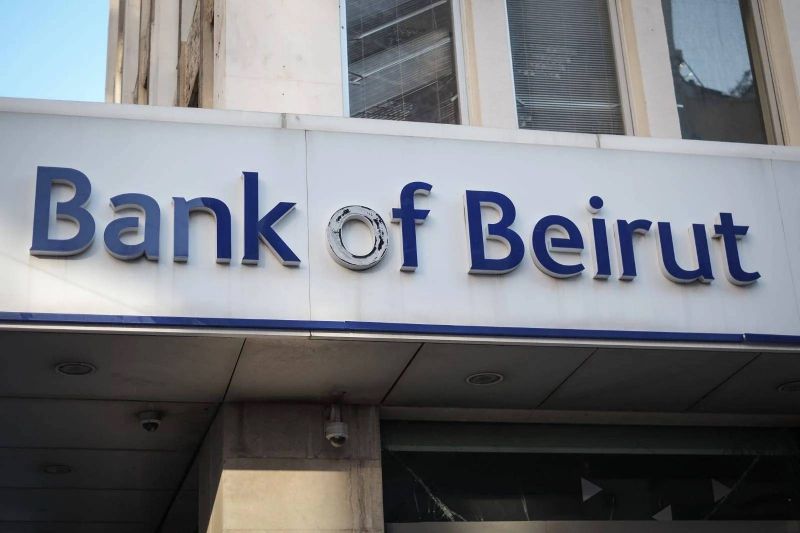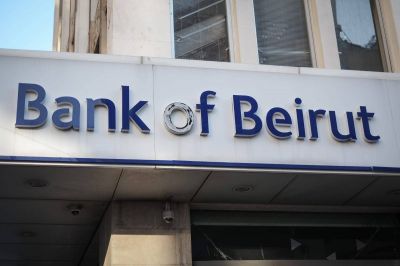
A Bank of Beirut sign, with the letter "o" damaged. (Credit: João Sousa/L'Orient Today)
BEIRUT — Bank of Beirut (BoB), one of the country's largest banks before the onset of Lebanon's financial crisis, is reportedly charging 100 "bank dollars" or "lollars" in monthly fees on dollar-denominated accounts blocked by ad hoc banking restrictions put in place in the absence of a capital control law at the start of the crisis in 2019. This amount is on average 10 times higher than that charged by other Lebanese banks in the same category of fees.
The information was affirmed Friday to L'Orient-Le Jour by two BoB customers, who requested to remain anonymous for personal reasons. One of them agreed to provide a screenshot of his phone displaying an account statement on the BoB app. The image shows a $100 debit dated Sept. 28, 2023, with the description "Account Management Fees." According to the customers contacted, these fees are charged monthly.
The screenshot, which the source does not wish to have published due to the personal nature of the data it contains, shows that the $100 is not a fee generated by another transaction (a withdrawal or transfer).
The information provided by the customers was also affirmed by two sources at BoB whom we have been able to contact via our channels and who wish to remain anonymous for professional reasons. L'Orient-Le Jour has attempted to reach BoB management for formal confirmation or comment, but at the time of publication, we had not succeeded in making contact.
Siphoning off accounts
The term "bank dollars" or "lollars" is used to designate those funds deposited in Lebanon's commercial bank accounts when the exchange rate was pegged at LL1,507.5 to the US dollar and which since autumn 2019 cannot be freely withdrawn at their original value or transferred abroad. "Lollars" are contrasted with "fresh dollars", i.e. US dollars that have been deposited in special accounts set up since the start of the crisis and which can be freely withdrawn and transferred abroad.
Lollars can currently be withdrawn via two mechanisms set up by Banque du Liban: Circular No. 151, which allows small amounts to be withdrawn at the rate of LL15,000 to the dollar (this mechanism is less and less frequently used in practice), and Circular No. 158, which allows 300 or 400 fresh dollars to be withdrawn per month from funds held in "lollar" accounts. Presented as a means for depositors to circumvent banking restrictions, these schemes have, above all, enabled banks to get rid of a large proportion of their dollar liabilities to their customers by forcing them to take a substantial haircut.
With the parallel market exchange rate standing at around LL90,000 to the dollar at present, some depositors who still have accounts in lollars prefer to wait for a possible decision by the authorities on bank restructuring and the repayment of frozen deposits in the hopes of recovering some of their funds on better terms.
If confirmed, the reported inflated lollar account fees could be seen as an attempt by BoB to discourage customers from retaining these accounts and thereby wipe out as many dollars as it can from its liabilities. One hundred lollars in bank charges per month per account adds up to 1,200 lollars that could potentially be sucked out of each account every year.
Total foreign currency deposits in Lebanese commercial banks have fallen from over $116 billion at the end of 2019 to around $90 billion today.
In four years of crisis, Lebanon has still not embarked on a serious process to restructure its banking sector and organize the repayment of its public debt and frozen bank deposits. Many depositors, furious at being denied access to their funds, have taken cases to court, while some have taken the law into their own hands and held up bank branches demanding access to their funds.
Bank of Beirut CEO Salim Sfeir is also the sitting president of the Association of Banks in Liban.
